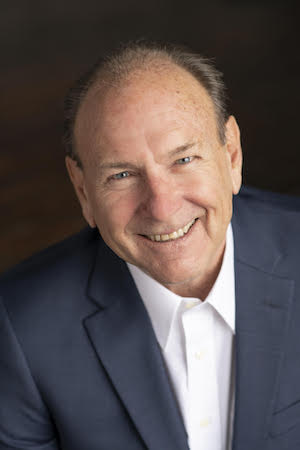Schuetz: Data Is King, And Other Free Advice For The Massachusetts Roundtable On Wagering Limits
"It seems that we are gravitating toward a model in the U.S. that is less of a sports betting model and more of a sucker-punching model."
4 min

Data! Data! Data!
I can’t make bricks without clay.
–Sherlock Holmes

It appears that the Massachusetts Gaming Commission is holding a Wagering Limitations Roundtable, this Tuesday at 11 a.m. ET.
I entered the gaming industry in 1971, and over the last few years, I have come to learn that wagering limitation is apparently a thing. Who knew?
Moreover, as I understand it, it is a thing about sports betting. This also surprised me a bit, for I have had oversight responsibility for several Las Vegas books, one of which was the largest in the regulated world, and I did not learn of this notion there.
In spite of being regulated much of my life and submitting over 120 gaming license applications as a casino executive and board member, having researched gaming regulation as a dissertation topic, and having been a senior official in two different regulatory agencies, I have learned a great deal about the new regulatory model that so many are using these days for sports betting.
Hurry up and hold on to your hat
I call it the let’s-open-sports-betting-quickly model. It involves appointing some folks to regulate it who have no experience in betting and then figuring it out along the way.
Since I wasn’t invited to the roundtable, I will share my thoughts here. I have found the Massachusetts Gaming Commission to be one of the best in the U.S., and I applaud them for exploring this topic.
I need to mention I am a bit biased about the wagering limits concept, for I have been fortunate to have been involved in a research effort over the last six months focused on the sports betting consumer. A group of us spent a lot of time and resources on this effort, and we had a very large and interesting sample. One of the many questions we asked was: “Have you ever been banned or limited by a sportsbook?”
The answer was very much a surprise and inspired the following two Tweets:
The research convinced me of several things. One, there must be many more beards in the gaming space than I would have guessed, because limiting certainly encourages this. Also, the domestic industry is doing its best to keep the offshore markets alive and well.
It also appears that lobbyists and regulators are cool with this, for they don’t seem to talk much about limiting. Again, I applaud Massachusetts for taking this step to explore the topic.
It seems that we are gravitating toward a model in the United States that is less of a sports betting model and more of a sucker-punching model. This policy is supported by primarily welcoming and encouraging soft play and limiting and discouraging sharp play.
Regarding the roundtable, I have the following recommendation: Many folks will want to keep the sucker-punching model going, so I would guess they will provide misleading testimony and try to talk this topic to death. To avoid this, I would suggest that you immediately get analytical. It’s that Data! Data! Data! thing that Sherlock was so fond of. That will provide you with excellent insights and stop a large portion of the nonsense. Handle this like you handled the Stephen Wynn investigation and get enmeshed in the facts. You were quite brilliant then; be brilliant now.
[Also See: The Nevada Gaming Control Board Has Officially Lost Its Way]As for some transparency…
As regulators, mandate that the operators file a quarterly limiting report. You can work out the details, such as the player has to have deposited, the size of the bet, how it was limited, and the reason it was limited. Oh, and have this audited. I guarantee you that this type of report will provide you with more insight than will talking about it for days.
If you need some really smart people to help you with this, just get in touch, for I know some really sharp people who can assist you (one of the most important things I learned in the betting business is that the incredibly smart people are on the outside of the counter). If you want to learn about betting, you really need to give voice to the bettors, and I can help you there.
Since I spent way too much of my life in universities studying economics, I was really indoctrinated in the importance of sound analysis. Moreover, my main mentor always preached for me to get down and dirty with the data. I recommend that the MGC follow this guidance.
You will have a very good measure as to how large the limiting is. You will also have a very good baseline. You may even discover the different marketing messages that target the sharps, the not-so-sharps, and people who struggle to maintain any restraint with their betting.
Secondly, I think a good analytic product will teach you that a lot of the talk you are hearing is cheap.
The point is that there is a lot going on under the hood of the modern sports betting systems, and the sooner you get your arms around that reality, the better off all participants in the betting space will be. Moreover, you can make the operators do all of the work. Tell them what you want.
Thank you for letting me share.
We create and maintain a fair, transparent, and participatory process for implementing the expanded gaming law.
Richard Schuetz entered the gaming industry working nights as a blackjack and dice dealer while attending college and has since served in many capacities within the industry, including operations, finance, and marketing. He has held senior executive positions up to and including CEO in jurisdictions across the United States, including the gaming markets of Las Vegas, Atlantic City, Reno/Tahoe, Laughlin, Minnesota, Mississippi, and Louisiana. In addition, he has consulted and taught around the globe and served as a member of the California Gambling Control Commission and Executive Director of the Bermuda Casino Gaming Commission. He also publishes extensively on gaming, gaming regulation, diversity, and gaming history.






